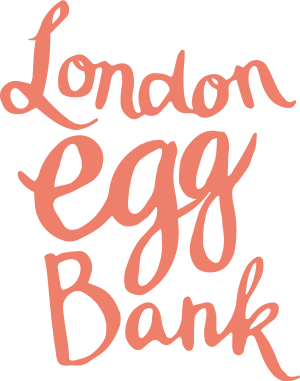FAQ
USING DONOR EGGS IN THE UK

How long will the process take?
The whole process, from the initial consultation to embryo transfer, takes on average 2 months. However, it can be shorter or longer depending on factors like how quickly you complete all paperwork if you need any additional tests, how long you take in selecting a donor, your availability for travelling for treatment, etc.
How will I find a local clinic able to do my scans and what would you require from them?
You can search for fertility clinics, gynaecologists or ultrasound centres close to you. You will need to ask them for monitoring pelvic ultrasound scans and reports and blood tests if you’re having all initial stages of treatment in your home country. Your treatment coordinator will be able to provide you with information on what would be required by fertility clinics in the UK.
When do I order my donor eggs?
Once you have had your initial doctor’s consultation you can reserve donor eggs from our online database. If you have any questions, you can email our matching team-matching@londoneggbank.com
Can I pick the treatment dates myself?
Once you have selected a donor and all paperwork and tests have been completed, you can start your treatment. Normally, treatment will need to start with your period, but you can decide if you want to go ahead in each cycle. Alternatively, we can prescribe you a contraceptive pill that will allow us to control when your cycle starts. If you don’t have a period, you can start at any time.
Before your initial doctor’s consultation, you will need to provide details about your medical history and your previous treatments/investigations (if applicable).
You will also need to have a report from a recent pelvic ultrasound scan to check your uterus and exclude pathology before the consultation. This scan can be done at a local fertility clinic and the report and images sent to us.
If you are having treatment using your partner’s sperm, we will need to see a recent semen analysis test.
Generally, everyone carries a gene for at least one genetic disease which is not a concern. However, if both parents have the same mutation, this gives the child a 25% chance of inheriting the actual condition and is therefore important that we take care that the sperm provider doesn’t share the same genetic mutation.
If you’re having treatment with a male partner, we will send you a saliva DNA kit free of charge, which you would then need to post to our genetics lab.
If you are using donor sperm, we will need the list of genetic screenings your sperm donor had to check he is not a carrier of the same condition as the egg donor.
Once you have had your initial doctor’s consultation you can reserve donor eggs from our online database. If you have any questions about egg donation in London, you can email our matching team-matching@londoneggbank.com
Yes, but if you’re having treatment with a male partner, we will need to check that he isn’t a carrier of the same condition. We will send you a saliva DNA kit free of charge that you would then need to post to our genetics lab.
If you are using donor sperm, we would need to contact your sperm bank to check if he had a genetic screening for the condition.
The whole process of egg donation in London, from the initial consultation to embryo transfer, takes on average 2 months. However, it can be shorter or longer depending on factors like how quickly you complete all paperwork if you need any additional tests, how long you take in selecting a donor, your availability for travelling for treatment, etc.
Yes, a high BMI may decrease your chance of success in fertility treatment. The maximum BMI to start treatment is 38.
Once you have selected a donor and all paperwork and tests have been completed, you can start your treatment. Normally, treatment will need to start with your period, but you can decide if you want to go ahead in each cycle. Alternatively, we can prescribe you a contraceptive pill that will allow us to control when your cycle starts. If you don’t have a period, you can start at any time.
Once a treatment plan has been created by your doctor, our nursing team will provide you with prescriptions and offer support and guidance regarding the availability of your medication in your home country. If you have any problems with getting the same brand of medication, let us know and we can advise a substitute. Depending on your country you may need to get in touch with your General Practitioner or a local fertility doctor that can issue the necessary prescriptions.
You can search for fertility clinics, gynaecologists or ultrasound centres close to you. You will need to ask them for monitoring pelvic ultrasound scans and reports and blood tests if you’re having all initial stages of treatment in your home country. Your treatment coordinator will be able to provide you with information on what would be required by fertility clinics in the UK.
Depending on your response to the medication, on average you will need 2-3 ultrasound scans in your home country and 0-1 scans in our clinic plus your embryo transfer appointment with us.
Yes, you can as you will be in treatment, and we are able to provide you with a letter in case you need to provide one to the airline.
You will have your ultrasound scans at either our Harley Street or London Bridge clinics in London. Your embryo transfer will be done at our Harley Street clinic.
No, if not possible to have both partners, we can just have the female patient for the procedure.
Yes, but we would recommend staying at least 24 hours to rest and to avoid stress travelling back in case there are any delays.
You can take a pregnancy test 12 days after your embryo transfer. Your clinical team will give you the exact date. You may use a home urine test or have a βhCG blood test, which can confirm the result with greater accuracy.
Our nurses and treatment coordinator will keep in touch with you until the 12th week of pregnancy. They will review your pregnancy scans and make sure that you have all the prescriptions and medications you need. After the 12th week, your pregnancy care will be transferred to your local pregnancy care unit/midwife.
If your pregnancy test is negative, you should let us know immediately so that we can give you instructions regarding your medication. You will then have a follow-up with your consultant to discuss the next steps. If you have frozen embryos remaining in storage, you can have another embryo transfer. Or if not, you can select a new egg donor in the UK to create embryos.
Get Started
Please contact us for your free initial consultation
